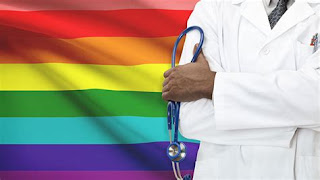Lacerda-Vandenborn, E., et al. (2025).
American Psychologist, 80(4), 522–534.
Abstract
Promoting decolonial and liberation psychologies (DLPs) requires psychologists to critically interrogate taken-for-granted assumptions pertaining to psychotherapy relationships. One fruitful area of interrogation surrounds conceptualizations and practices concerning multiple relationships (MRs), wherein a psychologist and client share another form of relationship outside of the psychotherapy context. The prevention or minimization of MRs is widely viewed as an ethical imperative, codified within professional ethics codes and further encouraged through insurance and liability practices. From the standpoint of DLPs, the profession has not adequately grasped the extent to which psychotherapy relationships reflect individualistic selves that facilitate psychologists’ serving, however unwittingly, as “handmaidens of the status quo.” We present three practitioner testimonios from among our authors—Indigenous, Muslim, and lesbian, gay, bisexual, transgender, queer, questioning, and other sexual/gender minorities—to concretely demonstrate how the professional and ethical framing around this ubiquitous practice within psychology has served to flatten human relationships within a colonizing frame. We then discuss three problematic assumptions concerning MRs that are reflected in the American Psychological Association’s Ethics Code. We offer communal selfhood, a theoretical framework that aligns with DLPs, as a potential space for understanding and reframing MRs. We conclude with general recommendations for conceptualizing therapeutic relationships without recourse to a problematic conceptualization of MRs.
Public Significance Statement
Decolonial and liberation psychologies challenge conventional thinking concerning “multiple relationships” in psychotherapy. Discouragement of multiple relationships reflects an individualistic ideology and risk-aversive managerialism, protecting the profession more than promoting public welfare. Professional and ethical reforms, in line with a “communal selfhood” framework, would reinforce the profession’s commitments toward antiracism and anticolonialism.
Here are some thoughts:
The paper critically examines the traditional ethical stance on "multiple relationships" (MRs) in psychotherapy, arguing that the prevailing individualistic, risk-averse approach is often unsuitable for diverse communities. The article uniquely applies decolonial and liberation psychologies (DLPs) to challenge these Western-centric norms, advocating for a "communal selfhood" framework. It stands out by featuring compelling practitioner testimonios from Indigenous, Muslim, and LGBTQ+ psychologists, illustrating how rigid MR prohibitions can be detrimental in community-oriented contexts where interconnected relationships are vital for trust and healing. The article not only critiques existing guidelines but also offers recommendations for systemic reform, aiming to foster antiracism and anticolonialism within the psychology profession.









